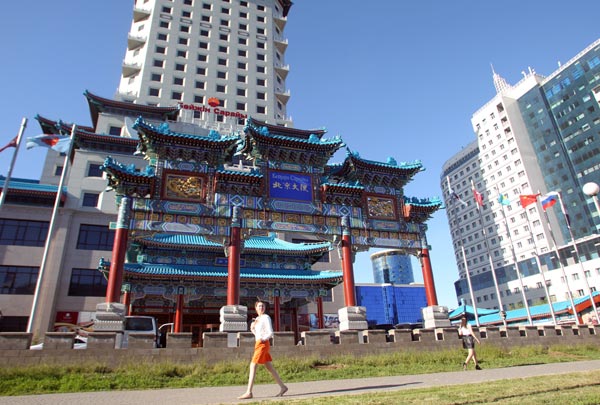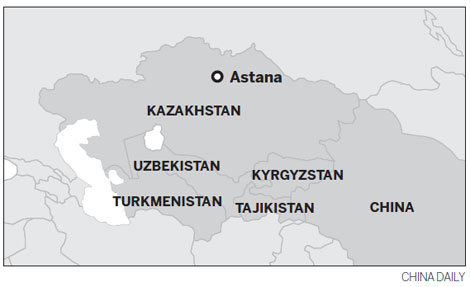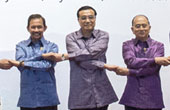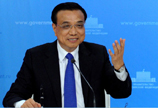
Diplomat calls for making 'connectivity' a priority
Comments Print Mail Large Medium SmallEditor's note: During his visit to Kazakhstan in September, President Xi Jinping proposed that China and Central Asia join hands to build a Silk Road Economic Belt to boost cooperation. The idea has been widely echoed in Central Asian countries, becoming an encouraging blueprint for Chinese areas along the Silk Road that linked Asia and Europe for more than 2,000 years. China Daily reporters will travel through the belt. They will show the progress and expectations of the countries, businesses and peoples on the route.
China and Kazakhstan must focus on "connectivity" in the broadest sense - from roads to communication networks - to realize the goal of building the Silk Road Economic Belt so that both countries can reap the benefits of development, said China's ambassador to Kazakhstan, Le Yucheng.
"The building of the Silk Road Economic Belt is still at an early stage. Much work needs to be done, and I think the most urgent is road construction; namely establishing connectivity," Le said in an interview.
|
 People pass a five-star hotel designed, built and managed by Chinese in Astana, the capital of Kazakhstan, on Monday. China's ambassador to Kazakhstan says roads between the two countries are urgently needed. Zou Hong / China Daily |
Inland Kazakhstan connects both the developed European economic bloc and the emerging Asian economic bloc, and it enjoys unique geographical advantages and enormous potential, he said.
"To transform this potential to reality, all networks, be they roads, railways, airlines, pipelines, telecommunication and even satellite communication, should be integrated," the ambassador said.
Plamen Dimitzov, a professor of international relations and energy security at Eurasian National University in Astana, capital of Kazakhstan, agreed that connections will be crucial.
He said the ancient Silk Road was mainly a transport corridor, and that the Silk Road Economic Belt could help to revive it by emphasizing infrastructure construction between China and Central Asia, which will be more open than ever. After the infrastructure is completed, all countries along the corridor could take advantage of it according to their own needs, Dimitzov said.

Last year, during visits to Turkmenistan, Kazakhstan, Uzbekistan and Kyrgyzstan, President Xi Jinping proposed joint projects to establish the Silk Road Economic Belt and boost development of countries on the route.
Le pointed out that these projects need massive investment, and that long-term vision is the priority.
Xi's proposal to establish an Asian infrastructure investment bank offered a new source of financing and has received positive responses from countries in the region. Le said that China can be counted on to do its utmost, with support from other countries, and that a number of projects already have been launched.
In 2011, the Chongqing-Xinjiang-Europe International Railway - starting from Chongqing, entering Kazakhstan through the Alataw Pass, and continuing through Russia, Belarus and Poland before ending in Duisburg, Germany - was put into operation and has boosted trade between China and Kazakhstan. The railway and many other projects are prime examples of cooperation, the ambassador said.
Another example he highlighted was the work by Chinese telecommunications company Huawei to make 4G networks available in Kazakhstan, enabling instant communication, online business and distance education for the country's approximately 17 million people.
Since the establishment of diplomatic relations more than 20 years ago, both countries have witnessed an upward trajectory in development, Le said.
China is Kazakhstan's biggest trading partner with bilateral trade hitting $28.6 billion last year - an almost eightyfold increase from 1992, when diplomatic ties were established.
Contact the writers at cuijia@chinadaily.com.cn and zhouwa@chinadaily.com.cn

Background




